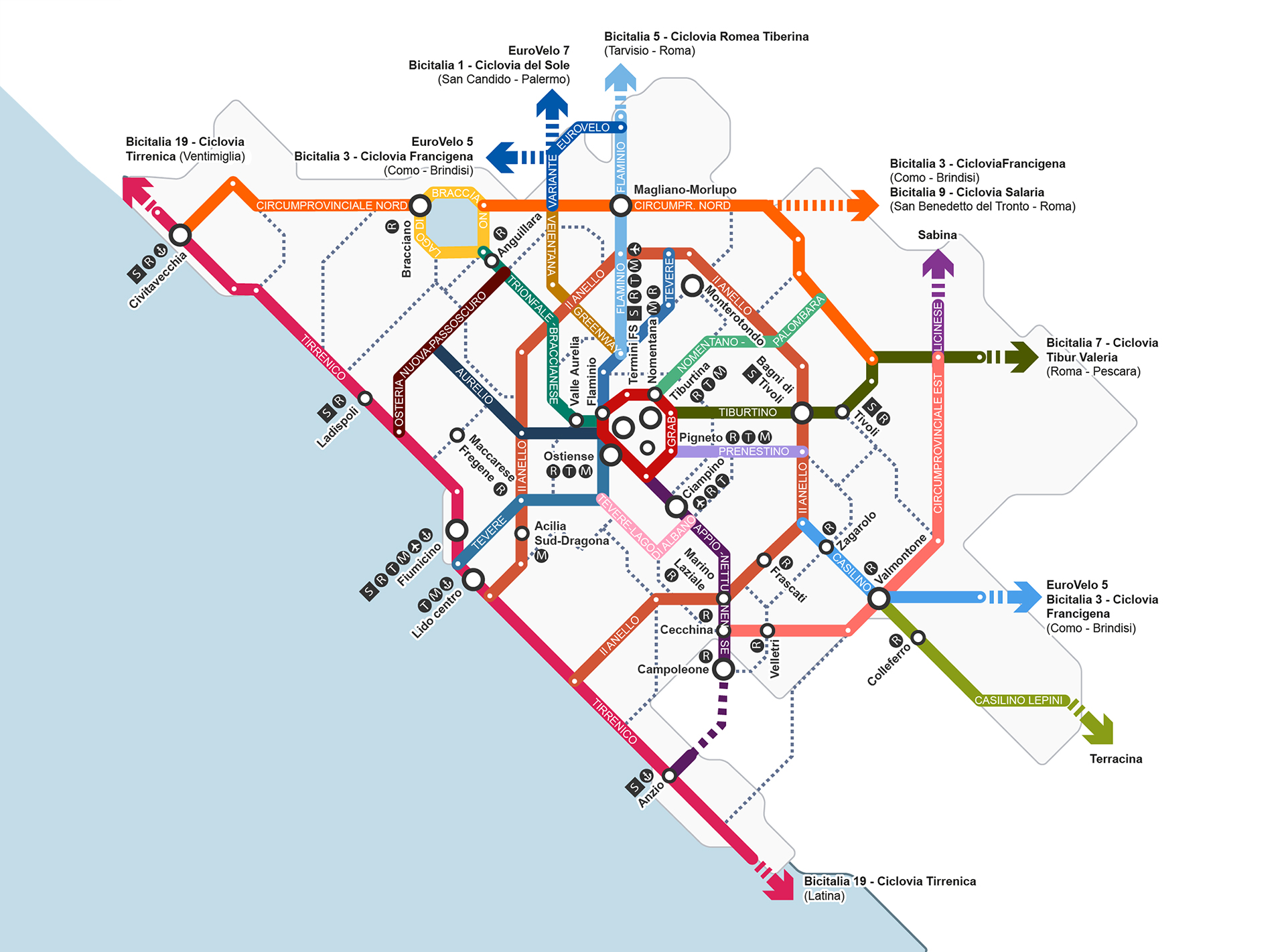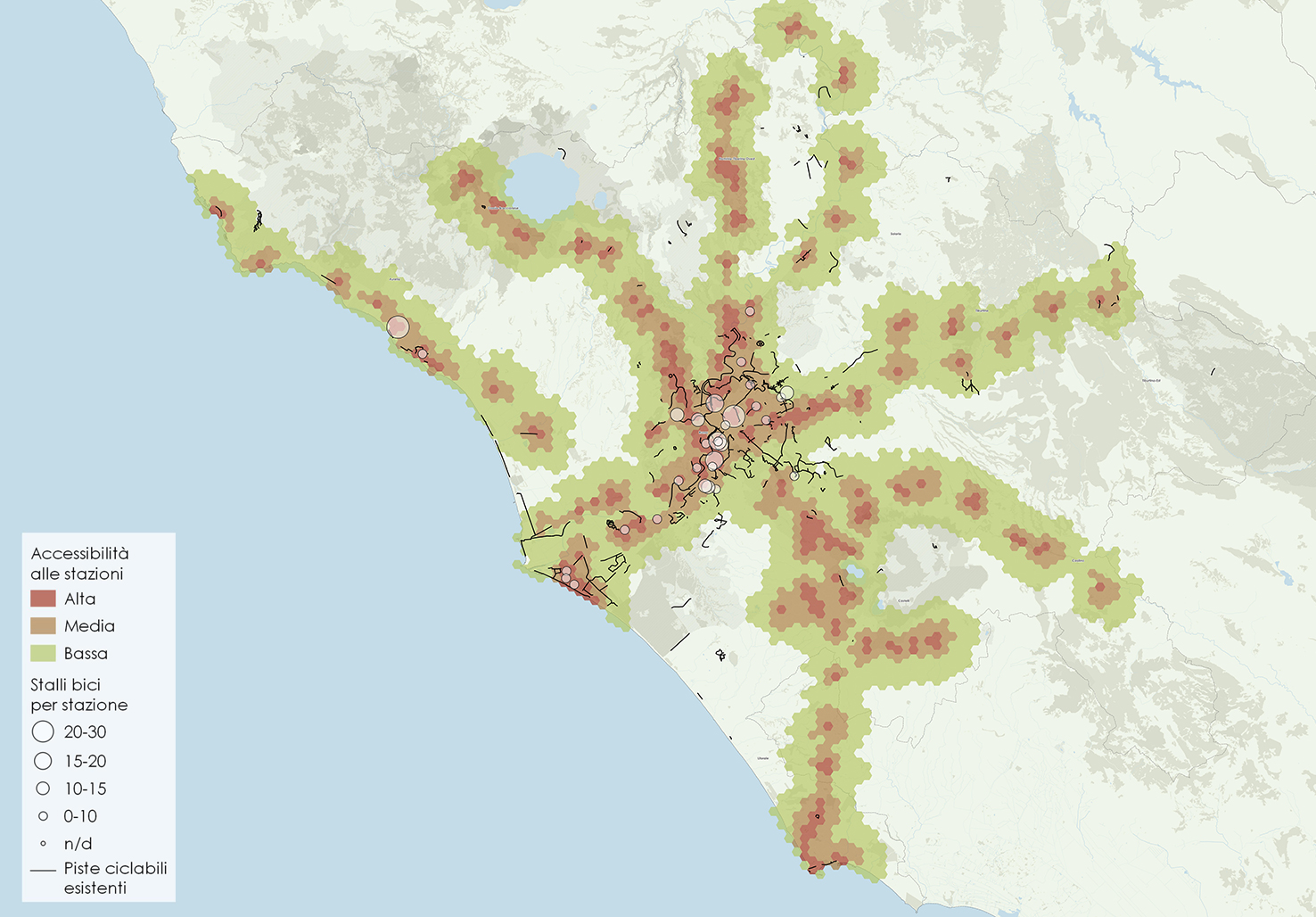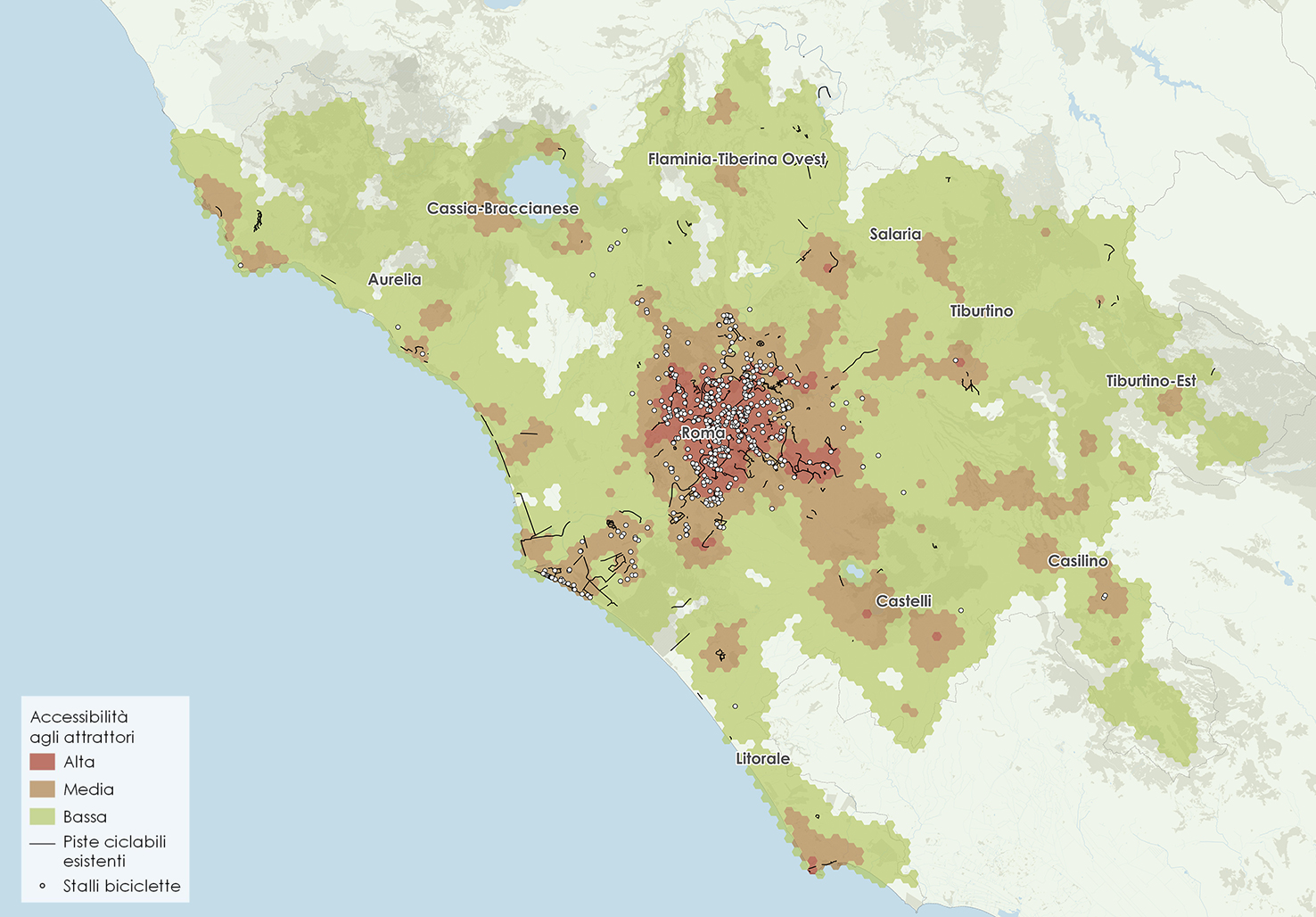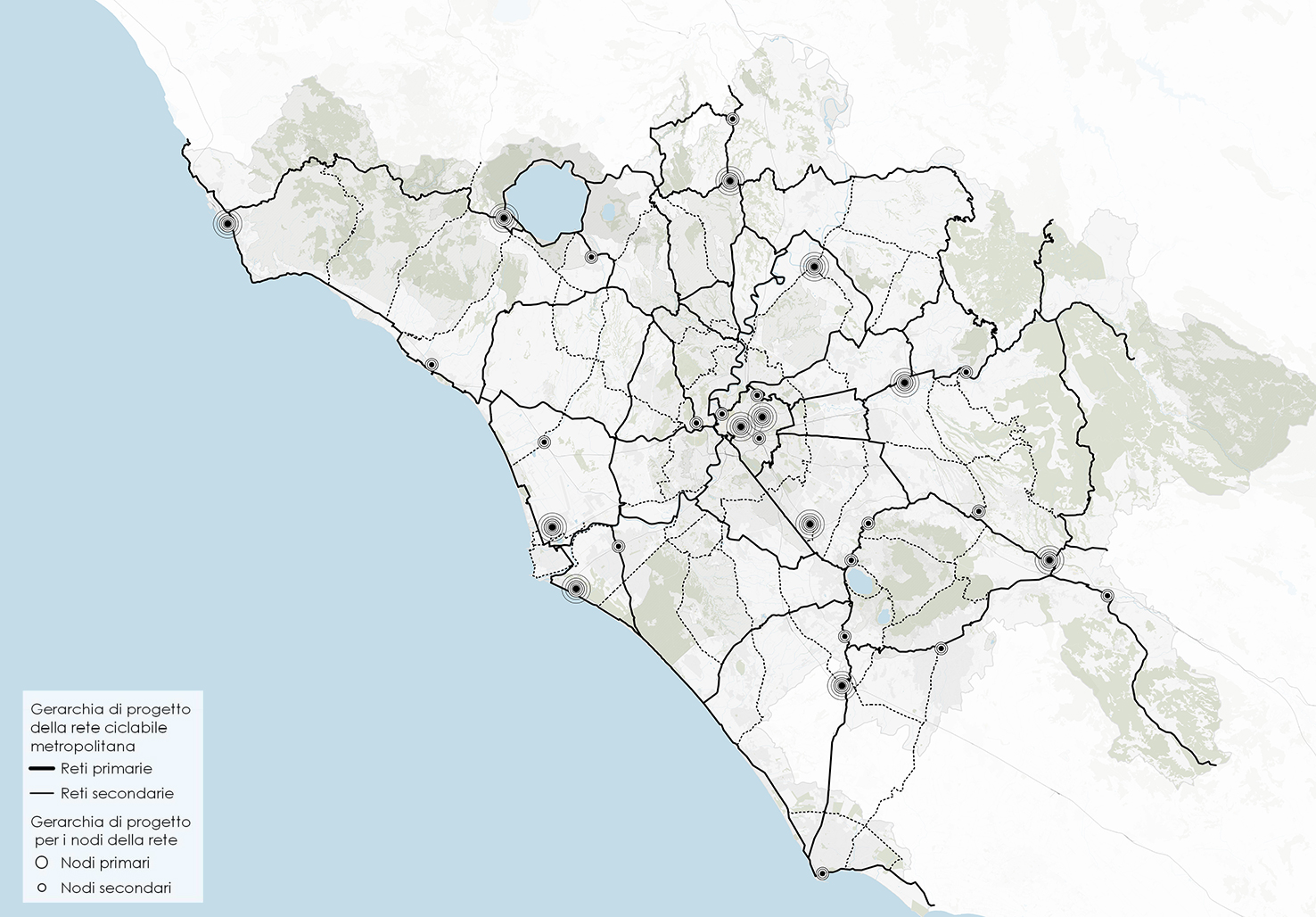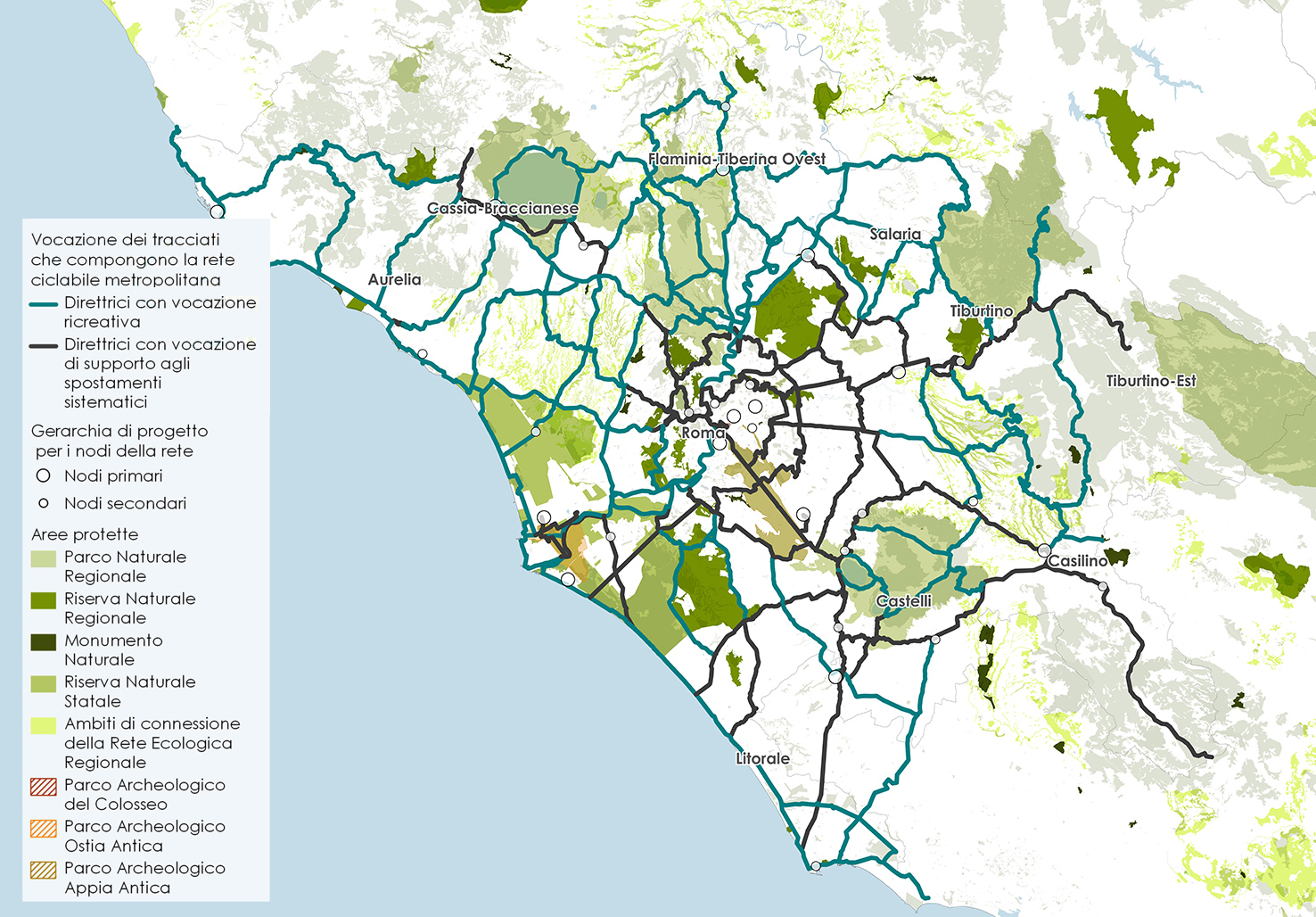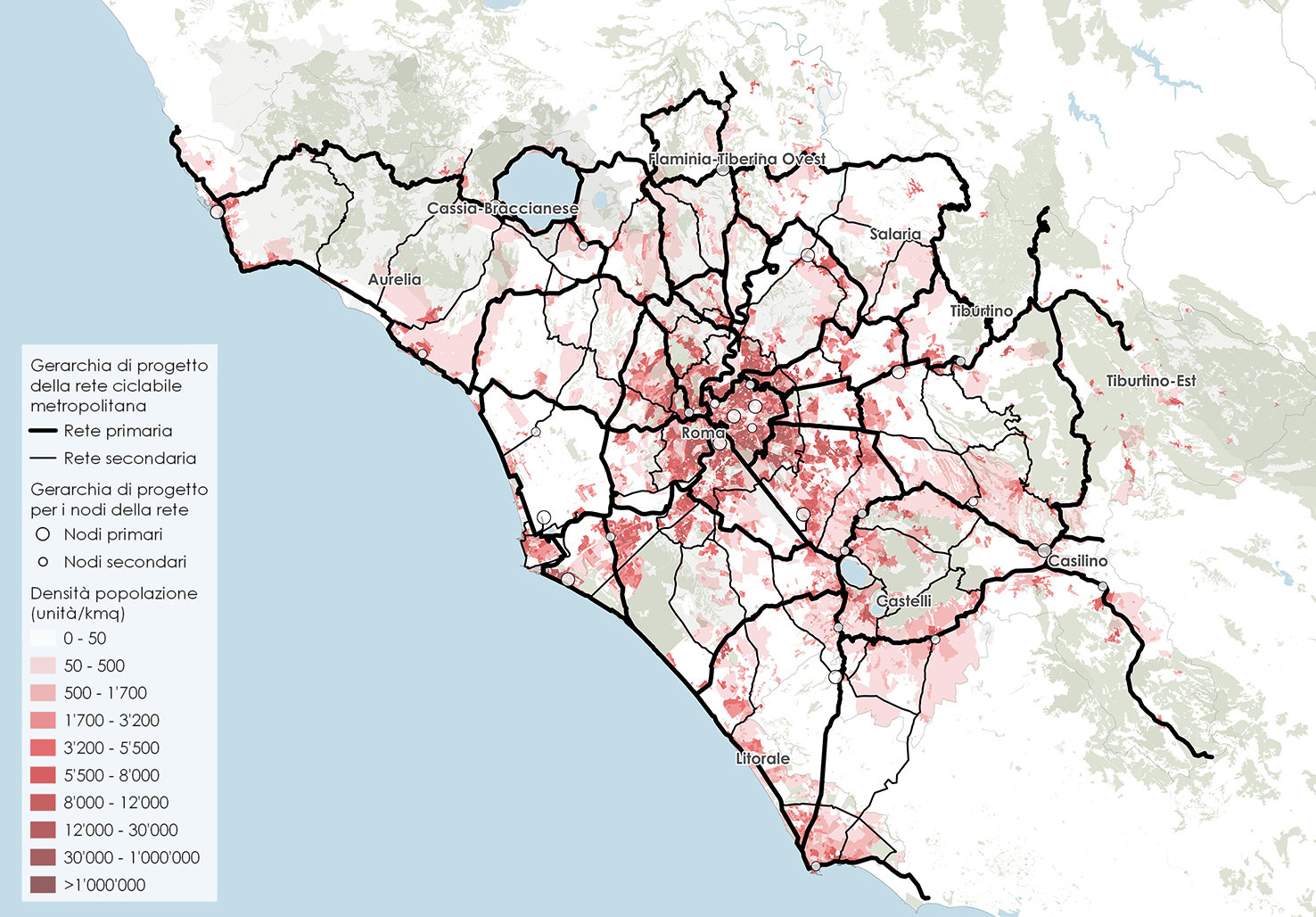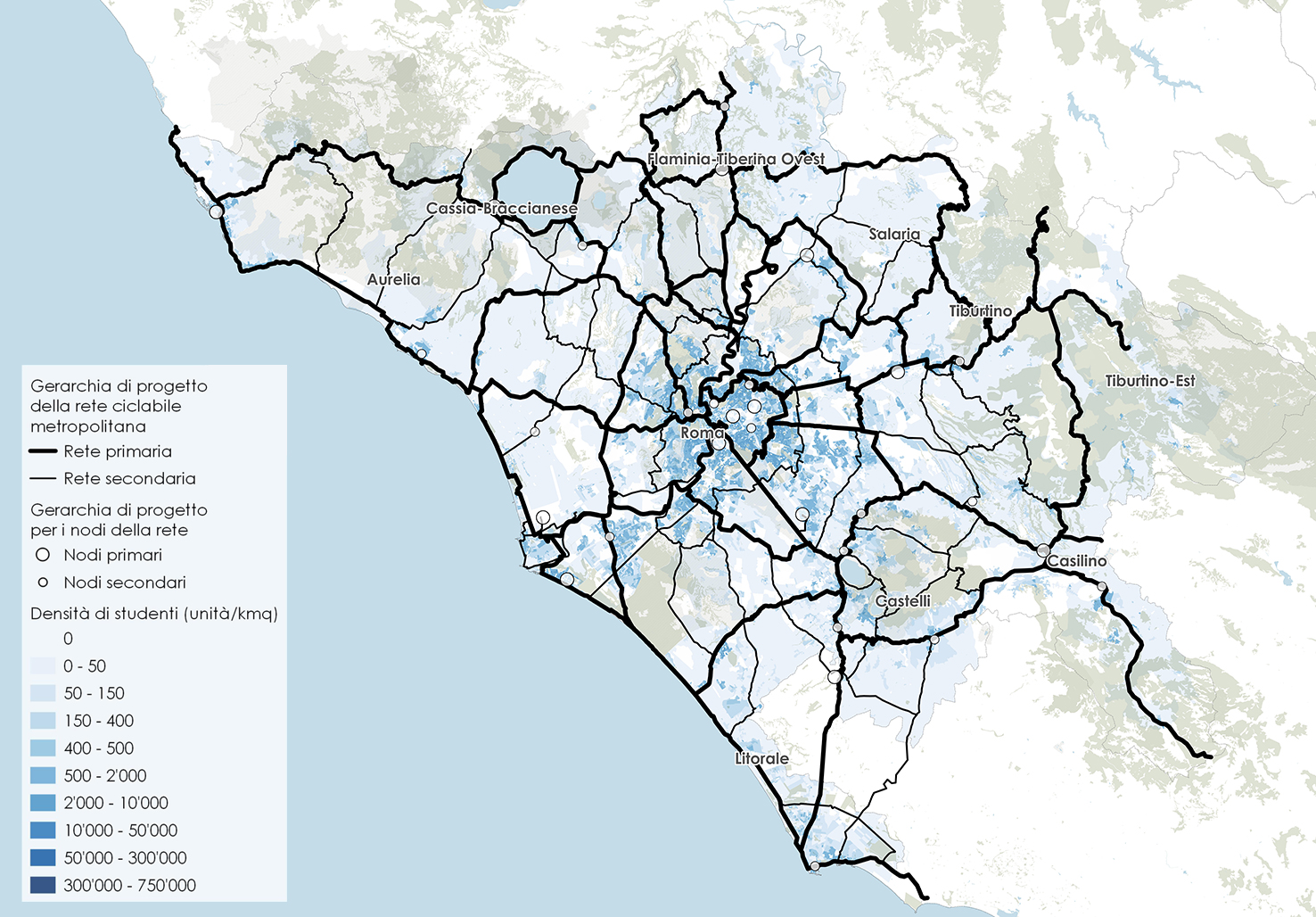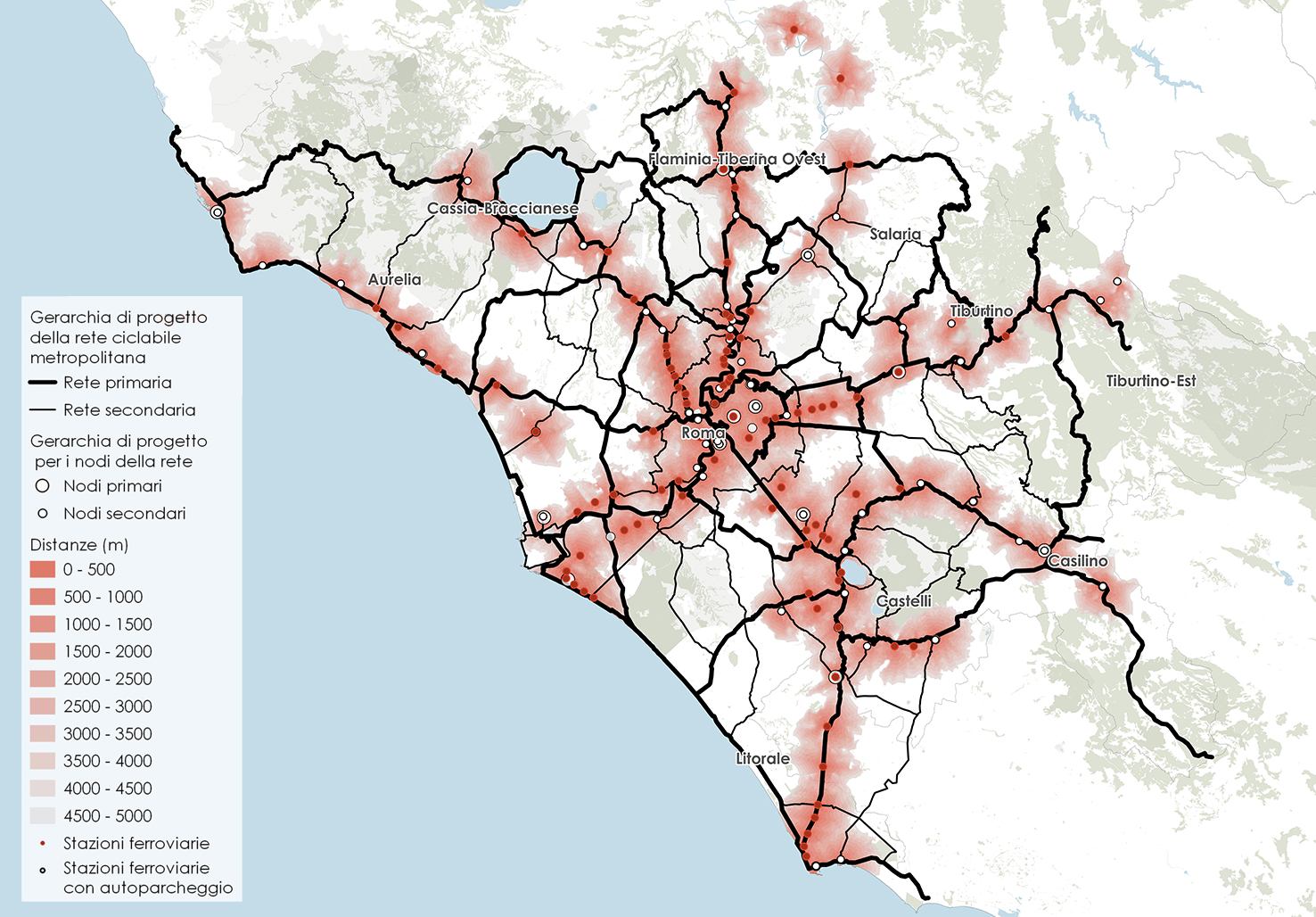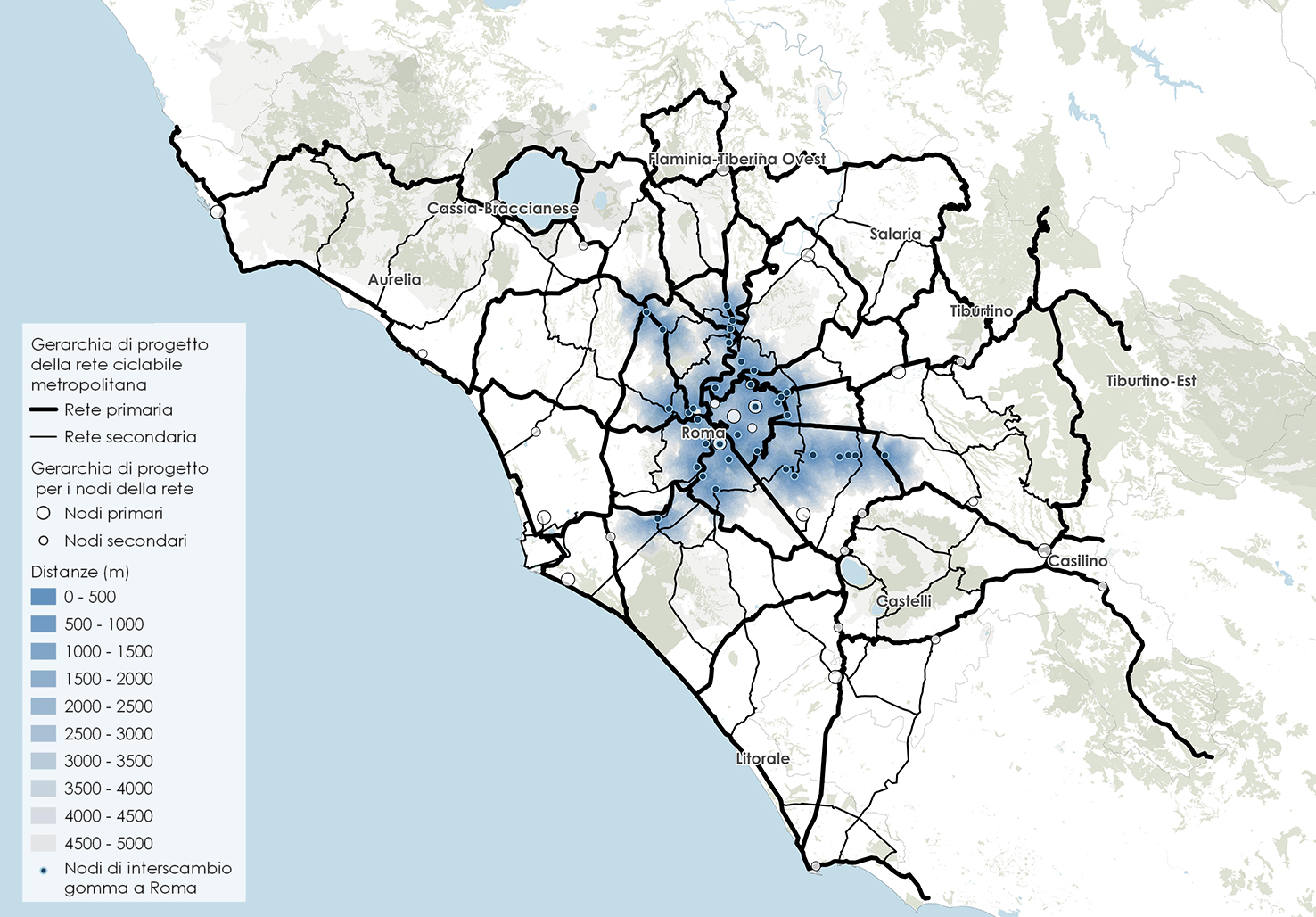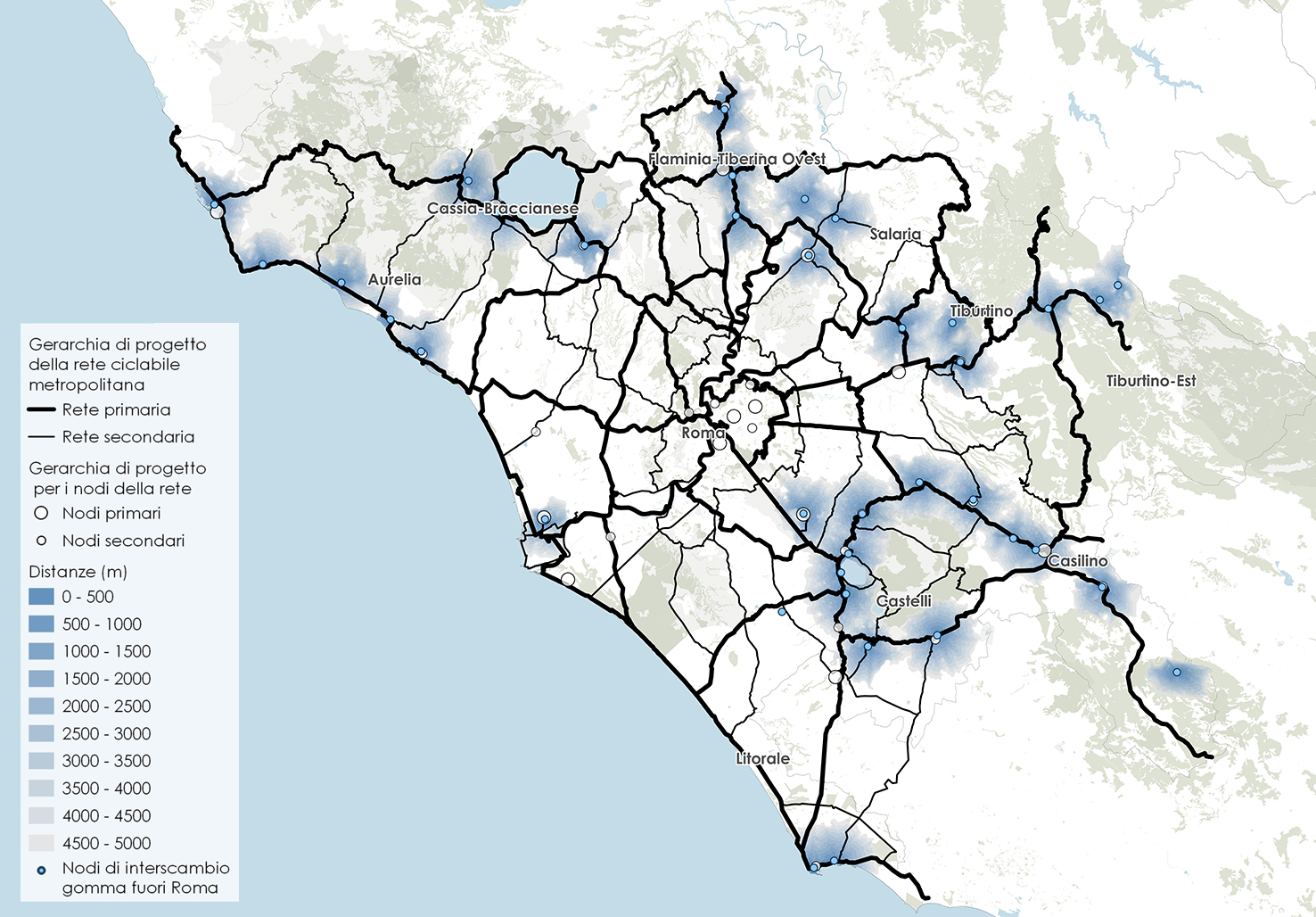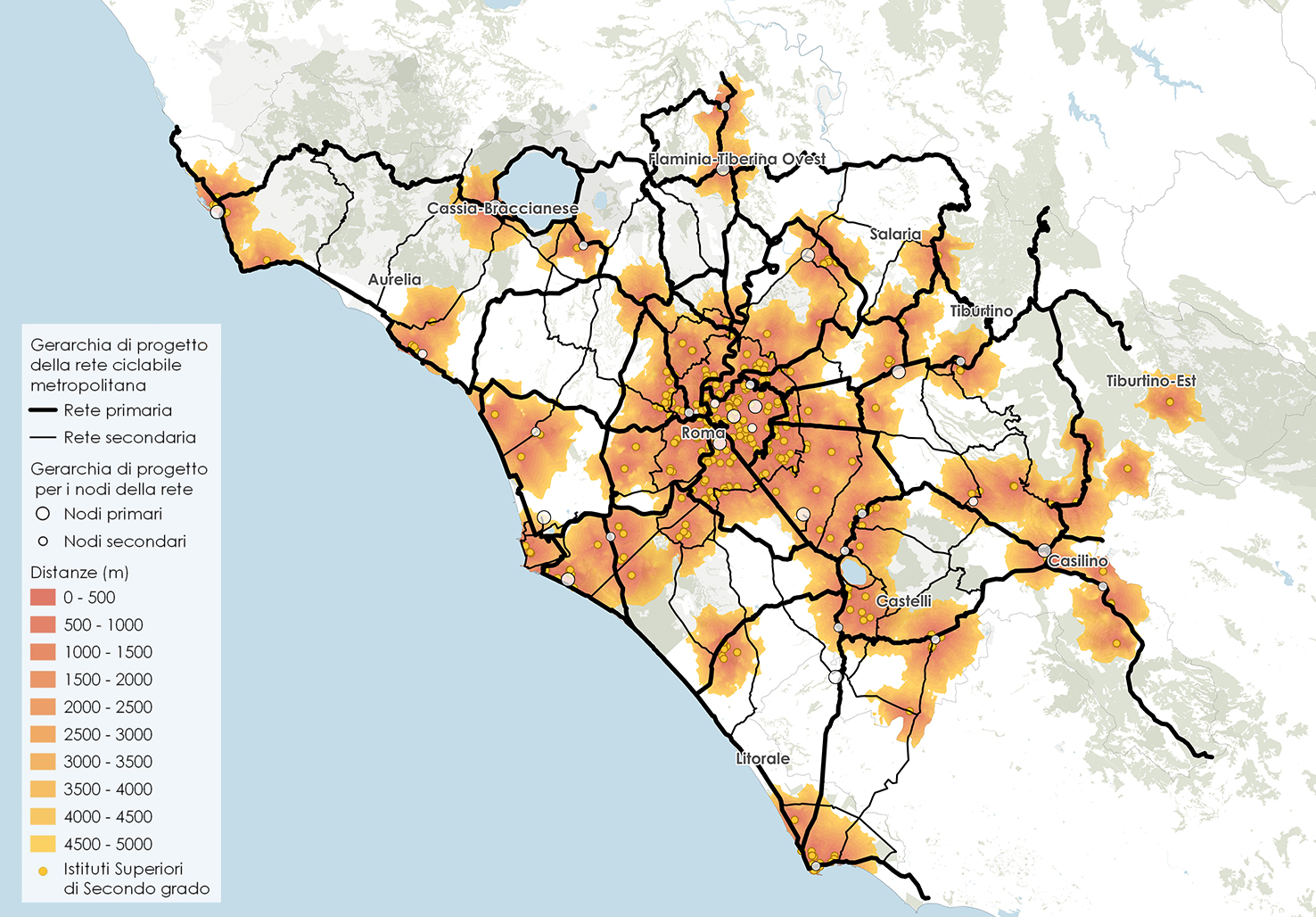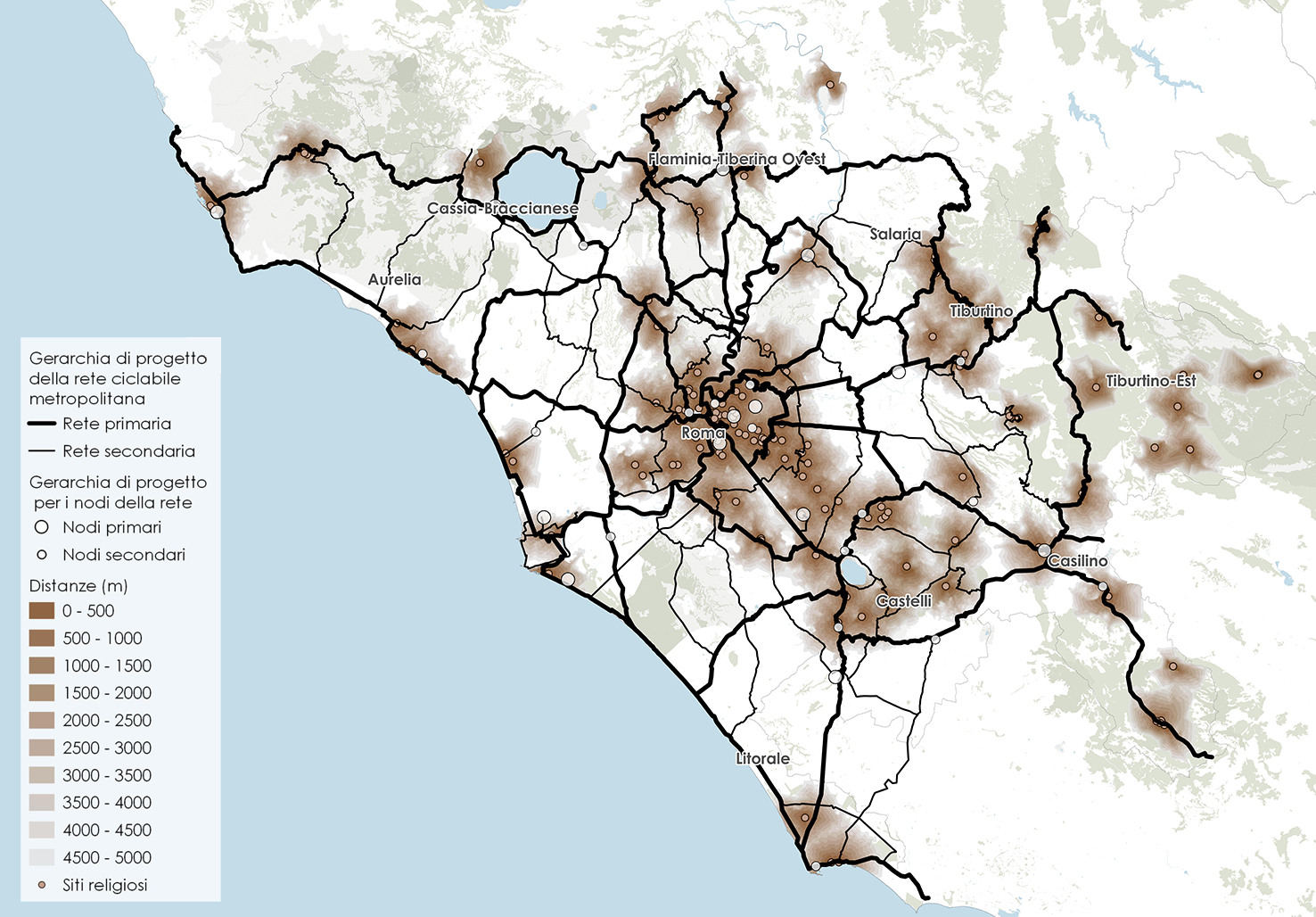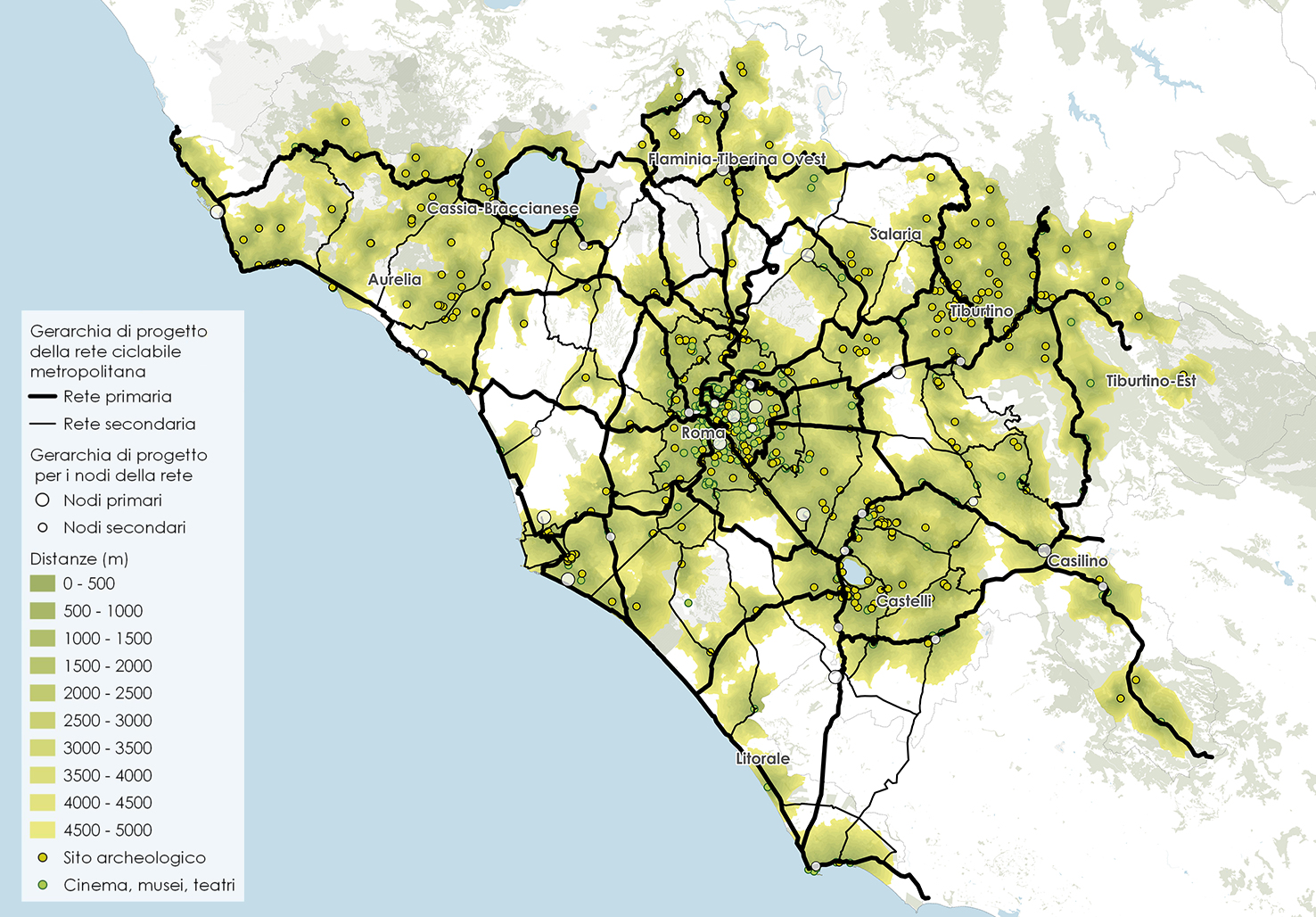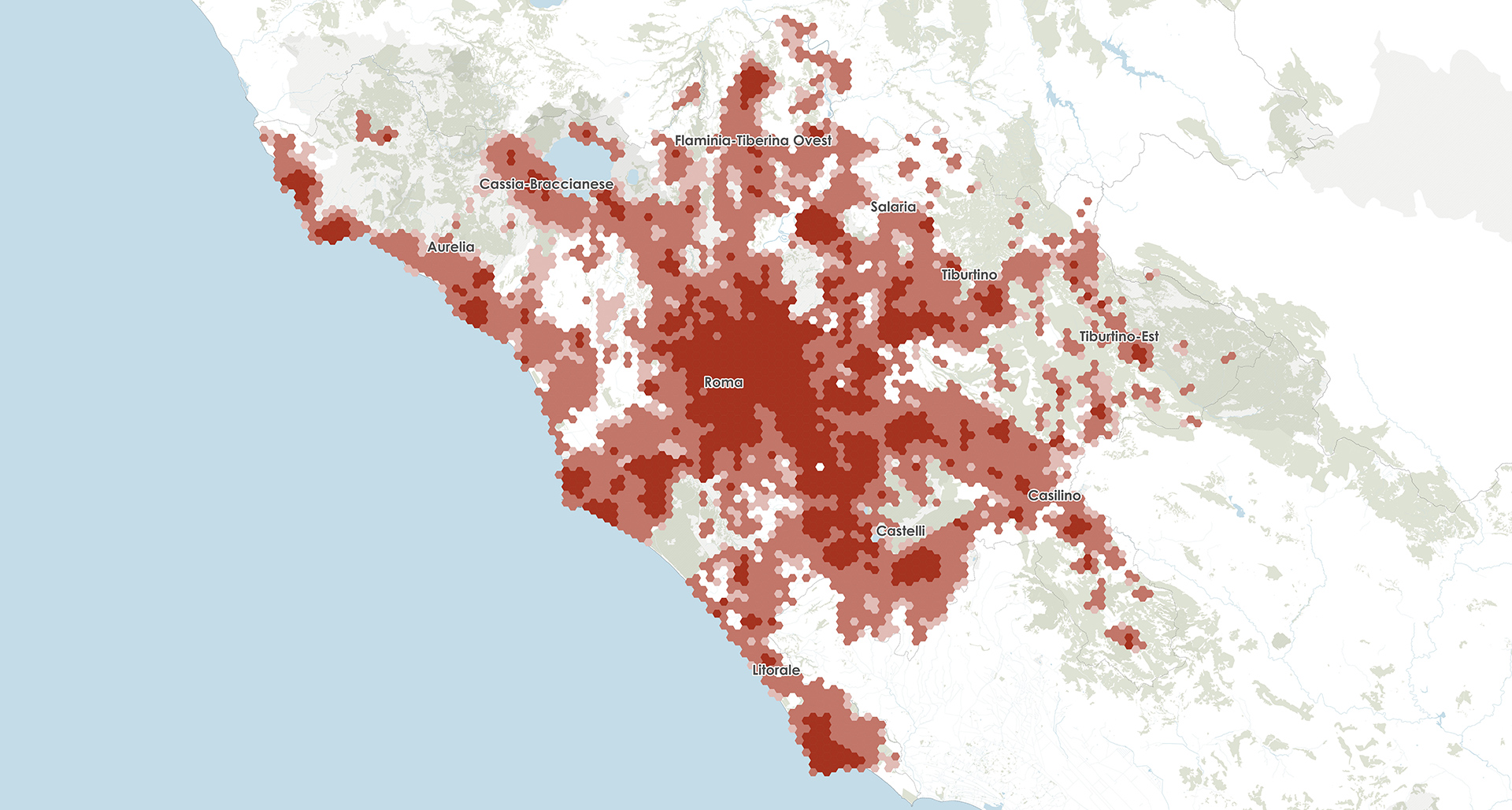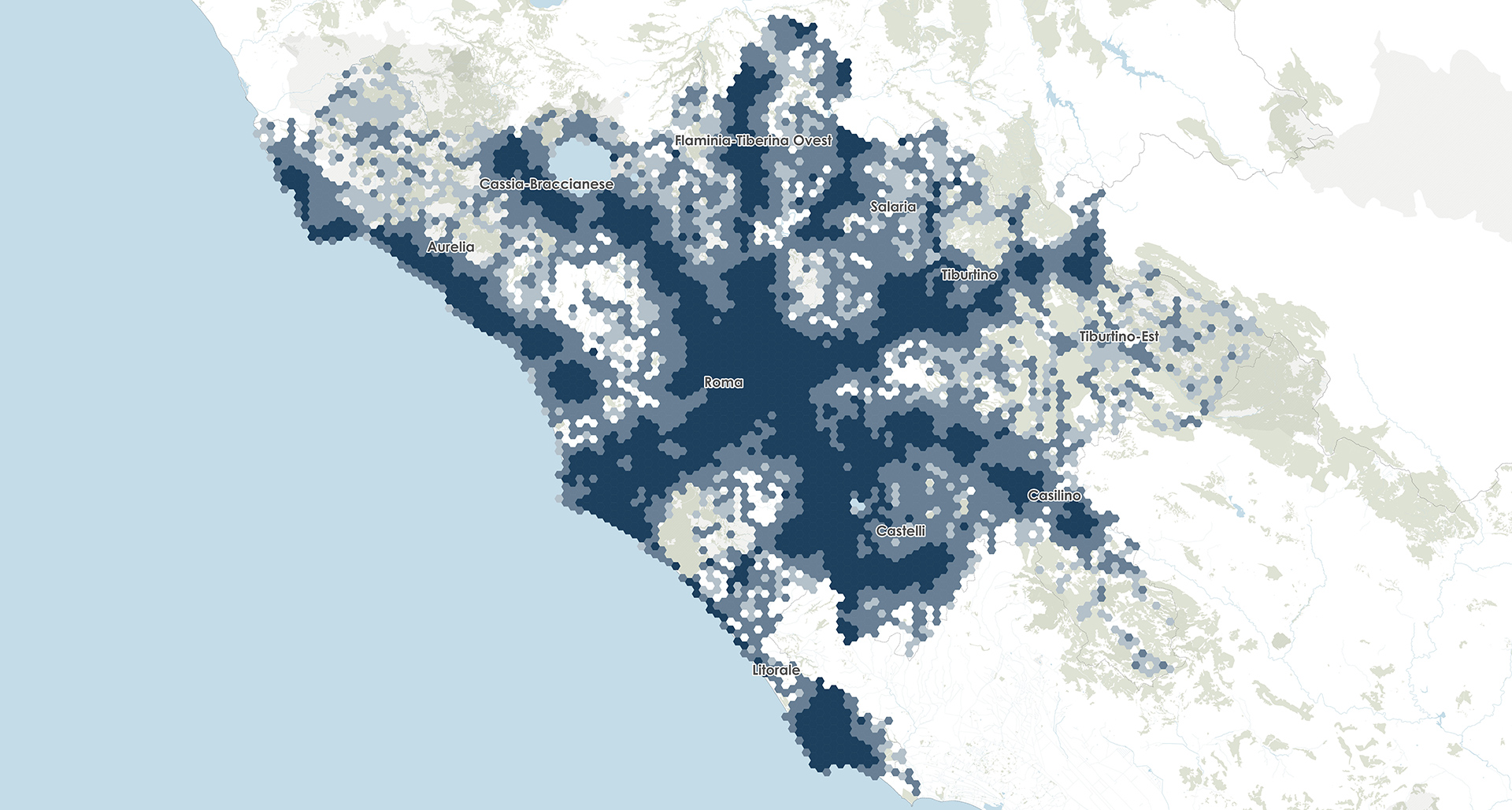Metropolitan Biciplan Roma
Rome
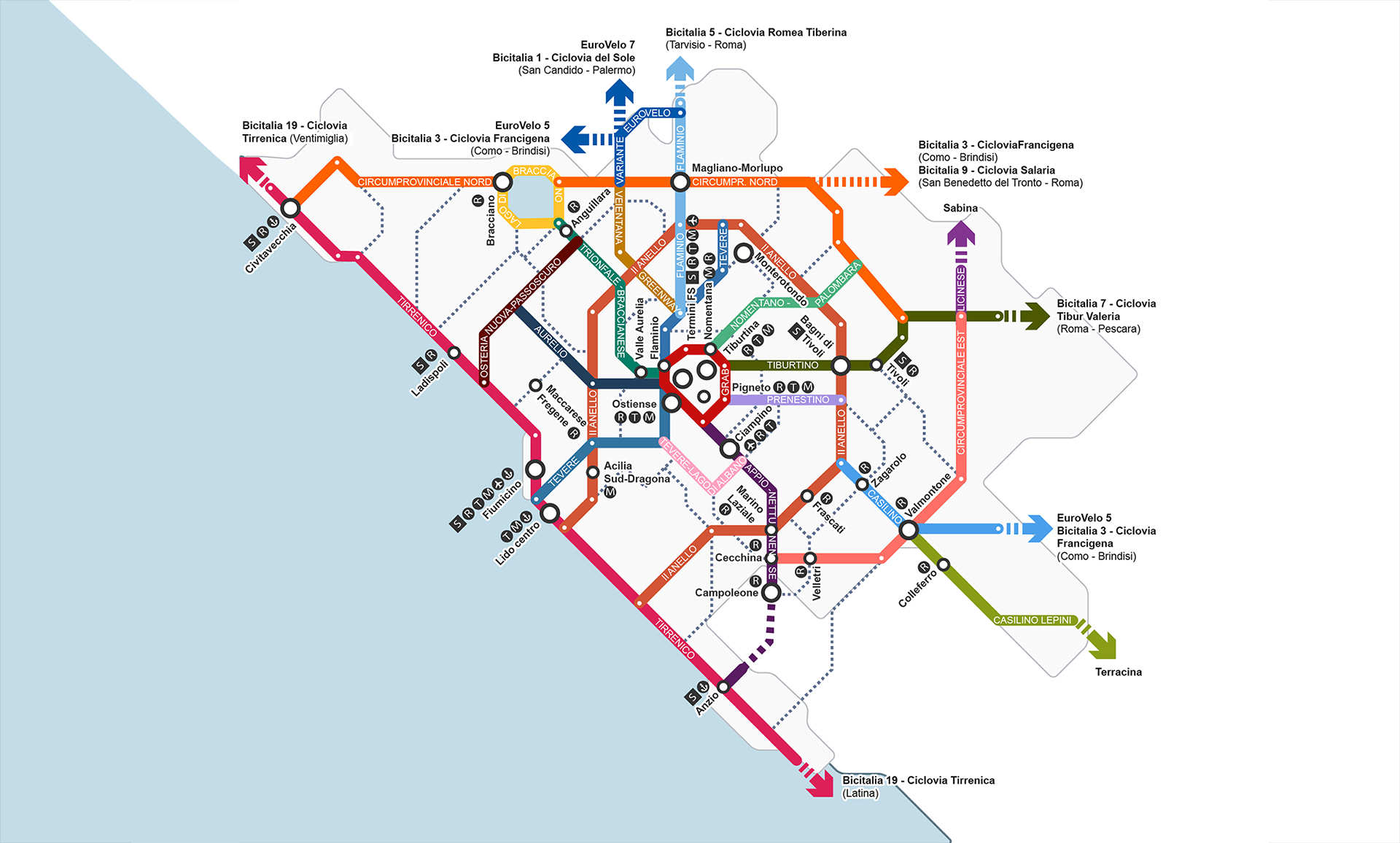
The first Sustainable Urban Mobility Plan for the Metropolitan City of Rome was approved at the end of 2024.
The SUMP is a strategic tool that plans the transition to a more sustainable mobility system, helping its inhabitants to live and move around the territory in a more conscious, safe and sustainable way.
This tool is of great importance as it elaborates policies and interventions at the metropolitan scale, with the Capital as part of the metropolitan system made up of 120 municipalities. The SUMP aims to achieve widespread sustainability over an area of more than 5,300 square kilometres and a resident population of more than 4.2 million people.
The SUMP integrates all aspects of mobility and several specific plans. These include the Biciplan, which was developed by MIC-HUB under the coordination of GO-Mobility, which is responsible for the overall SUMP.
The Biciplan provides for a cycle network of 1,437 km and the creation of new bike infrastructure in 30 strategic areas for bicycle-train interchanges. The flat terrain and the fact that 71% of the population is located within 1km of the project's metropolitan cycle network make it ideal for encouraging a shift to more sustainable transport choices.
Location
Rome
Client
GO-Mobility
Main expertise
Pedestrian and Cycle Studies; Regional & Urban Transport Planning
PROJECT HIGHLIGHTS
- 1,437 km of planned cycle network
- Cycle network catchment analysis: more than 70% of the population is located within 1km of the project's metropolitan cycle network
- A multimodal and sustainable transport network for a metropolis of 4.2 million inhabitants
Project gallery
Our contribution
The MIC-HUB team analysed and developed the proposal for the metropolitan Biciplan under the coordination of GO-Mobility.
The aim of a metropolitan biciplan is to identify current and potential cycling routes around key points of interest and create a coherent plan for implementing it on a local scale.
Following analysis of GIS databases and existing planning tools, the team identified cycling hotspots and developed a cross-cutting strategy for both functional and leisure bike trips.
The Biciplan identifies a network of routes and promotes the creation of interchange nodes with the railway network, as well as supporting services such as refreshment and information points for recreational cycling.
The plan also proposes initiatives to develop a culture of active mobility, road safety, and respect, along with communication and incentive projects.
The SUMP, approved at the end of 2024, will help the Metropolitan City of Rome to carry out sustainable mobility works in the medium and long term to reduce the use of private cars in favour of public transport, walking and cycling.
